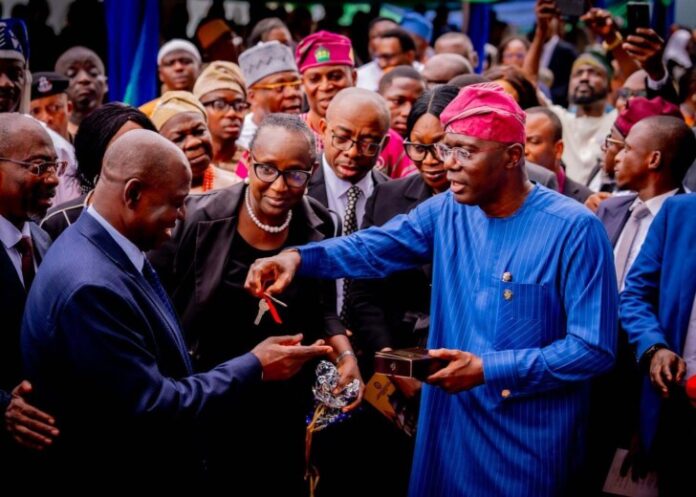Lagos State Government said 6, 465,667 million residents had registered and had their data captured by the Lagos State Residents Registration Agency, LASRRA, since inception, even as it targeted 10 million by year 2027.
Commissioner for Innovation, Science and Technology, Olatubosun Alake, stated this at the on-going 2025 Ministerial Press briefing in commemoration of the second year of the second term of the State Governor, Babajide Sanwo-Olu/Dr. Femi Hamzat administration, at Alausa, Ikeja.
Recall that LASRRA Bill was passed and signed into law on June 27, 2011 and flagged off the scheme in 2013, during the administration of the then Governor Babatunde Fashola.
LASRRA is an agency under the State Ministry of Science and Technology saddled with the responsibility of registering residents and issuing them residency cards.
READ ALSO: Lagos assembly adopts c’ttee recommendations on Oriba community, approves compensation
Enables the State Government to classify neighborhoods within the State and determine the population thresholds for certain facilities and utilities provided by the State. Also help analyze and identify areas for urban regeneration and actions to be taken.
Alake stressed that government target is to register over 20 million, while working vigorously to register 10 million in the next two years.
According to the commissioner, “Based on current statistics, 6,466,667 Lagosians have registered with the LASRRA. We intend to capture at least 10 million residents in the next two years.
“Out of the total registered, the number of adults is 4,058,833, while children, is 2,407,224.”
Meanwhile, he said, 50,000 residents are to benefit from the Lagos State Digital Leap Program.”
Alake said as part of efforts in fibre rollout and improved internet connectivity within the state, 3,000km metro has been laid and the number of subscribers increased to approximately one million between 2024 and 2025.
He added that the State government through the Ministry of Innovation, Science and Technology is set to install free internet in public spaces in some selected areas in the state in the last quarter of 2025.
According to him, installation of Internet in some public areas will complement efforts at making Lagos a megacity.
Alake also said over 60 innovators have been given N800 million grants to develop technology that will benefit the state, while over 70 research works have been conducted through the Lagos Science Research and Innovation Council, LASRIC.
He said that in order to enforce traffic rules and build a digital city, Intelligent Video Surveillance Cameras, IVD, have been installed in strategic locations in the state.
Alake also said the ministry had been promoting e-governance, safe city increase in digital traffic enforcement, improving cyber security through collaboration with private sector, driving data protection compliance project, technology development, as well as science research and innovation initiatives through its agencies.
In the area of cybersecurity, Alake said the state cyber security posture has improved over the past one year, adding that the state’s data system regularly faces thousands of cyber-attacks with two of such successfully mitigated recently, as the state has strong cyber security mechanism to contain the menace.

He stated that the ministry in the last one year had been able to digitize a number of activities in the state, digitizing the state data infrastructure, managing the Oracle payment for some state government’s employees, incorporating Artificial Intelligence tools powered Chabot to improve service delivery, as well as help the government to serve the residents better.
Alake added, “Building a digitized city will require physical infrastructure connections to improve the digital connectivity of the State.
“The MetroFibre project seeks to deliver 6000km of optic fibre and optic fibre ducts for increase in digital penetration.
Also speaking on Artificial Intelligence, AI, Alake explained, “AI is now astronomic and we know the danger in it. So we want to ensure that when people build the AI, it is safe and takes our diversity into consideration and also make sure it is fair.”
He added, “We will be giving guidelines for those who build. This is not a strait-jacket policy but self-assessment policy.”

